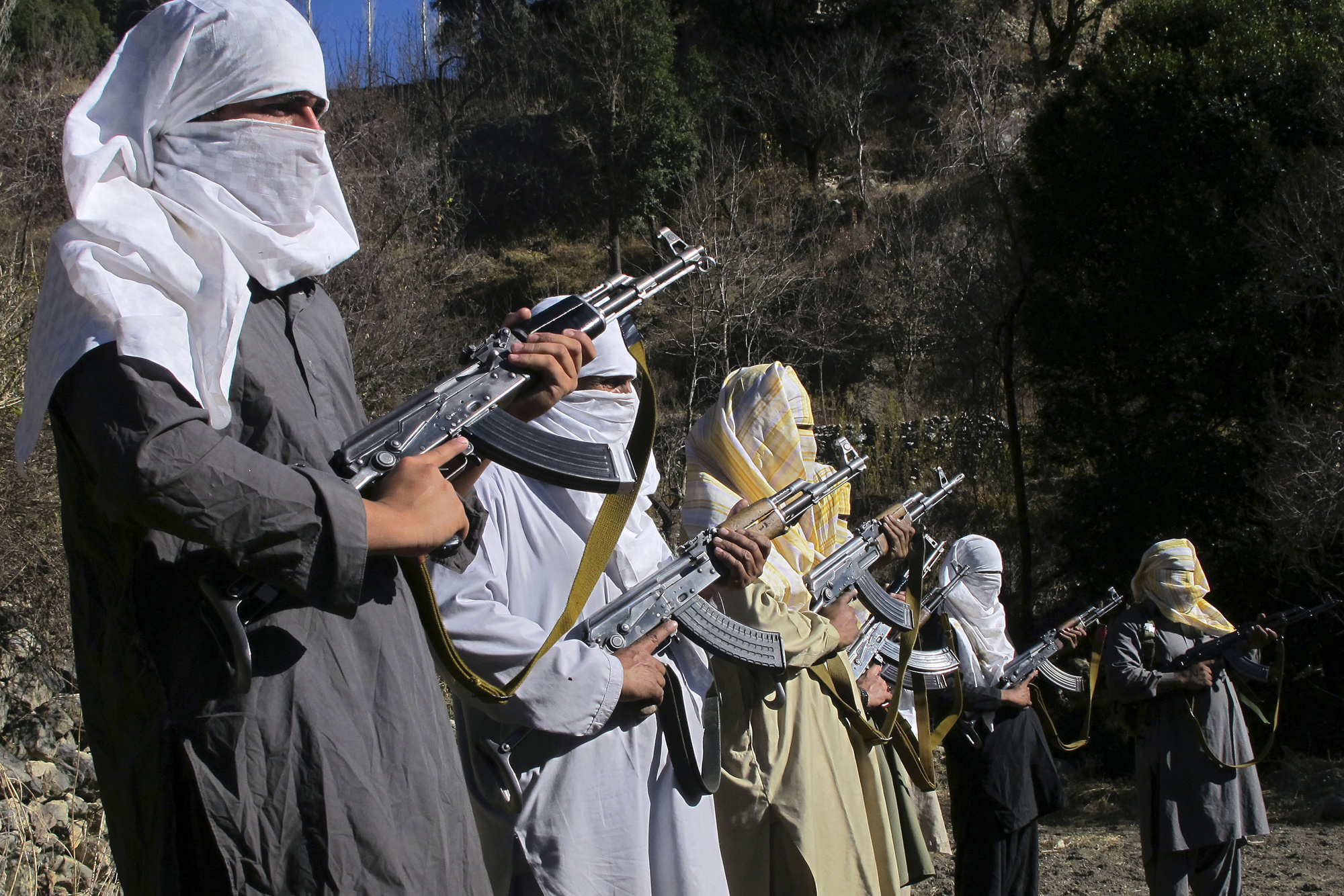Pakistan to Ban Haqqani Network And Jamaat-Ud-Dawa
Copy of Pakistan's move against terrorist groups?

NEW DELHI: The United States has welcomed reports that Pakistan is considering banning several terrorist outfits including the Haqqani network and Jamaat-ud-Dawa (JuD).
“We welcome the reports that the Government of Pakistan plans to outlaw the Haqqani Network, Jamaat-ud-Dawa, and I think about ten other organisations linked to violent extremism,” State Department Deputy Spokesperson Marie Harf told reporters. “If they go forward with this it is an important step, certainly, towards eliminating terrorist activity in Pakistan.”
“Certainly, this would be an important step going forward. We certainly believe that if this goes forward, that it would be an important step,” the deputy spokesperson said. “We have a long history of close cooperation with Pakistan on counter-terrorism efforts. We’ve been very clear with the Pakistani government that they need to crack down and go after all terrorist groups that threaten them, threaten their people — their people are, unfortunately, the victims of more terrorist attacks than, people probably anywhere else.”
Harf referred to US Secretary of State John Kerry’s recent visit to Pakistan, saying that “He had a number of conversations, not just about counter-terrorism issues — although that was a huge focus, and obviously wanted to personally express his condolences over the horrific attack in Peshawar — but also about the economic issues and other issues.”
Pakistan has often been blamed for drawing a distinction between the “good” Taliban and “bad” Taliban -- the former referring to groups operating in neighbouring India and Afghanistan, and the latter to the Tehreek-i-Taliban Pakistan (TTP) that is waging a war against the Pakistani state. The TTP recently carried out an attack on an army-run school in Peshawar, where 150 people -- mostly students -- were killed.
When in Pakistan, Kerry praised Pakistan’s counter-terrorism efforts, specifically Operation Zarb-e-Azb that is targeted at militants in North Waziristan. The US official however added that ll terror groups -- including the ones operating across the border in India -- need to be targeted.
"Terror groups like the Pakistani and Afghan Taliban, the Haqqani network, Lashkar-e Taiba, and other groups, continue to pose a threat to Pakistan, to its neighbours, and to the United States, and we all of us have a responsibility to ensure that these groups do not gain a foothold but rather are pushed back into the recesses of (Pakistan’s) memory," Kerry said in Islamabad, adding that "This task is obviously far from finished.”
The visit also followed a controversy regarding the US decision to deliver civilian aid to Pakistan under the Kerry-Lugar bill (otherwise known as the Enhanced Partnership with Pakistan Act of 2009). The pre-requisite to this $532 million aid is a clearance that Pakistan has taken “action against” anti-India terror groups Laskhar-e-Taiba (LeT) and Jaish-e-Mohammad (JeM).
India had reacted sharply to this, with Ministry of External Affairs (MEA) spokesperson saying in an official statement, “How the Government of the United States of America decides to spend U.S.taxpayers’ money is entirely its prerogative… However, India does not believe that Pakistan is showing “sustained commitment” or making “significant effort” or ceasing support” or dismantling “bases of operations” of the Laskhar-e-Taiba, Jaish-e-Mohammad, the Haqqani network and quite possibly the al-Qaeda.”
The US denied that the aid had been cleared. “No certification has been sought for funds to Pakistan, and no funds disbursed since 2013,” said State Department spokesperson Jen Psaki, but added that the aid could be disbursed through “additional funding”. Pakistani media, in turn, criticised India for stalling the aid.
At the end of his visit, Kerry cleared $250 million in aid, noting that Pakistan’s operation against militants had seen gains. However, Kerry cautioned that more needed to be done.
Perhaps this move on Pakistan’s part is indicative of that more.



